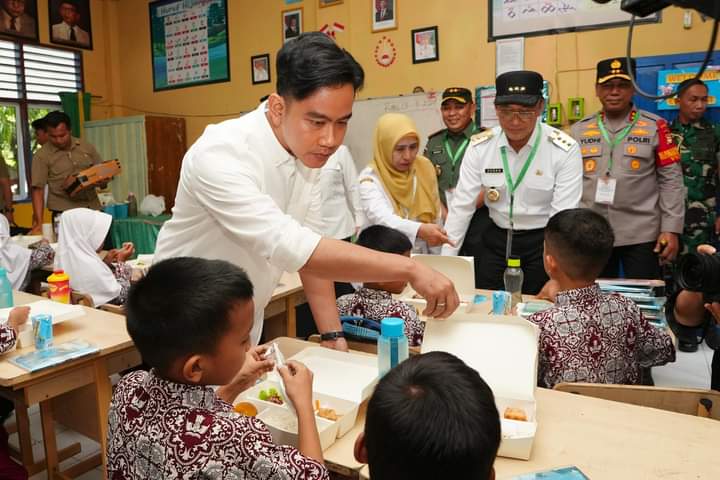Indonesia Faces Hunger Challenges as Free Meal Program Seeks to Improve Public Health
JAKARTA, RAKYAT NEWS – Indonesia’s National Development Planning Minister (Bappenas), Rachmat Pambudy, has stated that the government’s free nutritious meal program could provide a boost to the country’s economy by at least 0.1%. Speaking at the CORE Economic Outlook 2025 event in Jakarta on November 23, 2024, Rachmat emphasized that this initiative, which is projected to cost IDR 71 trillion, could also contribute to more equitable economic development across the nation.
The free nutritious meals program is designed to target vulnerable groups such as schoolchildren, infants, and pregnant and breastfeeding women. According to Rachmat, the program is an investment in human resources, aimed at addressing malnutrition, which continues to be a significant issue in Indonesia, particularly among these groups.
He expressed optimism that this initiative would lead to sustained economic growth and support income distribution.
Rachmat highlighted the widespread nutritional deficiencies in Indonesia, especially among expectant mothers, children under five years old, and school-aged children. “Indonesia faces a critical situation with malnutrition, particularly in the rural and underprivileged areas,” he said.
The program aims to address these issues by improving the nutritional status of these vulnerable populations, which would, in turn, enhance overall productivity.
The free meal program is expected to have a long-term impact on Indonesia’s economic development. Rachmat explained that improved nutrition would directly increase productivity, which is a key driver of economic growth. Additionally, it is anticipated that the program will help stimulate job creation and boost farmers’ income, contributing to overall improvements in purchasing power.
Indonesia’s current hunger index is a major challenge. According to the Global Hunger Index 2023, Indonesia has a hunger score of 17.6, placing it above other ASEAN countries like the Philippines (14.8), Malaysia (12.5), Vietnam (11.4), and Thailand (10.4). Furthermore, 7.2% of the population suffers from calorie deficiencies, while 26.8% of children under five experience stunting, a critical issue for the country’s future workforce.
Estimates from the Institute for Development of Economics and Finance (Indef) suggest that the free nutritious meal program could contribute IDR 14.61 trillion to Indonesia’s GDP by 2025. The calculation is based on the government’s budget allocation of IDR 71 trillion for the program, which is expected to benefit nearly 19.5 million people. According to Indef’s Executive Director, Esther Sri Astuti, the program would have a “multiplier effect,” stimulating various sectors of the economy.
Rachmat Pambudy further stressed that the program’s potential extends beyond just improving health and education. With an expected increase in education spending, the free meal initiative could also have a broader impact on economic sectors, enhancing overall economic resilience. “This initiative is not just about providing meals, but about ensuring that our future generations are healthy, productive, and capable of contributing to the economy,” he added.
As the government continues to push for the implementation of the free nutritious meals program, attention is now on how it will affect the broader economic landscape. Supporters argue that investing in the health and well-being of citizens is essential for achieving long-term growth, while critics warn of the financial strain it may place on the national budget. However, with careful planning, the initiative could play a crucial role in Indonesia’s path toward a more sustainable and equitable future.(Uki Ruknuddin)


Tinggalkan Balasan Batalkan balasan